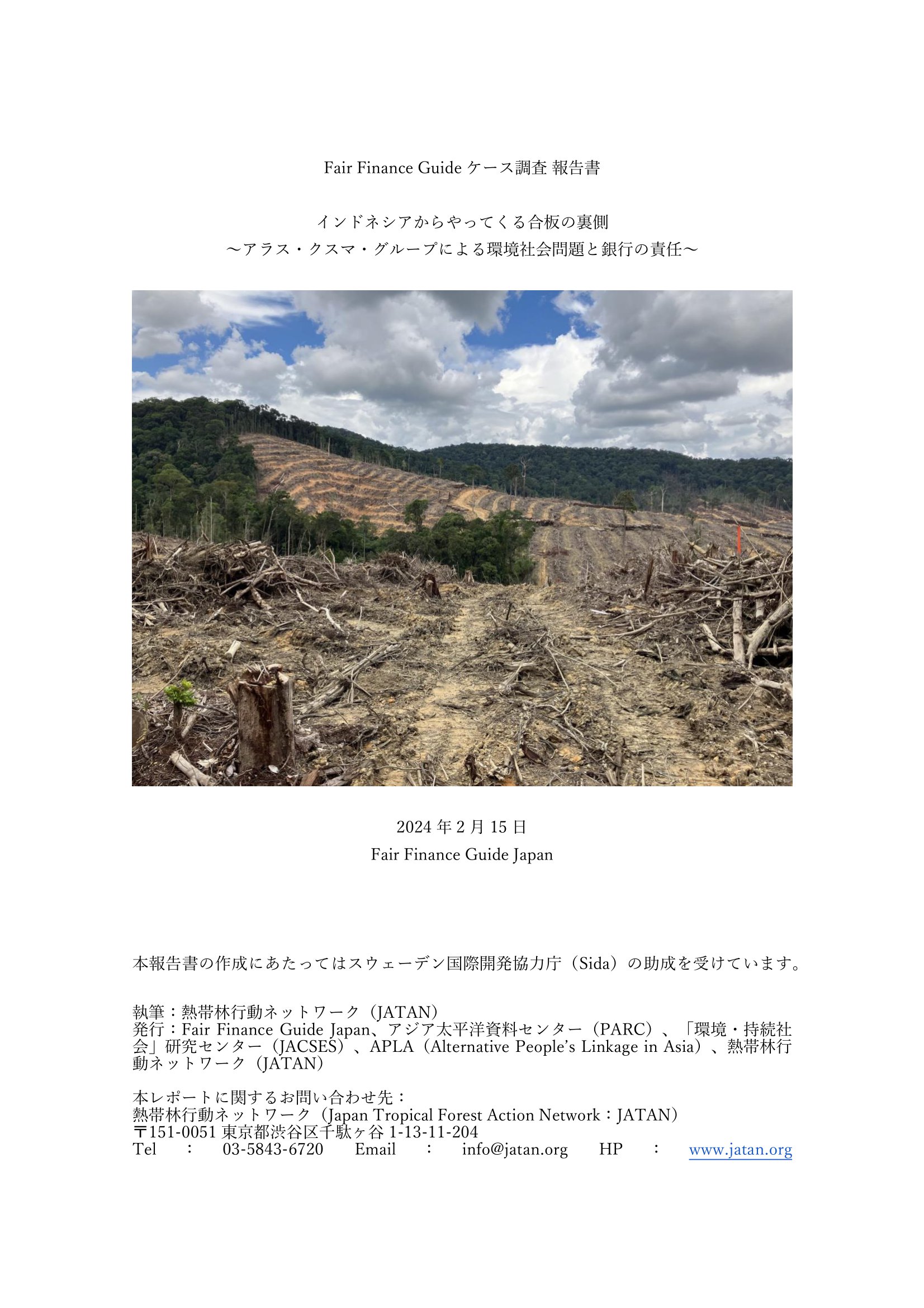
Alas Kusuma Group is one of the largest timber conglomerates in Indonesia, operating in an area of about 750,000 hectares, mainly on the island of Kalimantan. Several of the group’s logging and wood processing companies also produce and distribute FSC-certified timber. Mayawana Persada, an industrial silviculture company under the same group, manages an area of about 140,000 hectares in West Kalimantan, and an NGO survey revealed that between 2016 and 2022, a total of about 20,000 hectares of forest was cleared. According to Forest Watch Indonesia data, the area of natural forest lost in Indonesia as a whole has been decreasing since 2017. On the other hand, Mayawana Persada is accelerating the logging of natural forests within its project concession. Furthermore, the cleared forests include habitats for orangutans, which are listed as an endangered species, and peatlands, which have a significant impact on climate change. In addition to its involvement in deforestation, the company also has serious disputes with surrounding communities over land rights. The company is pushing for unilateral development without the agreement of the entire village, sometimes using means such as intimidation and criminalization.
An NGO investigation revealed that wood from these troubled companies was being exported to Japan as plywood products through several suppliers, including the aforementioned companies affiliated with the Alas Kusuma Group. Through the implementation of the survey, no Japanese companies were identified that are currently using wood from Mayawana Persada indirectly. In addition, some Japanese companies have begun to take steps to avoid sourcing wood from these problematic companies at the product level by prioritizing FSC-certified wood in their procurement policies and adopting NDPE policies (no deforestation, no peat land development, and no exploitation). However, since these are only confirmations at the product level, we are demanding Japanese companies that have business relationships with companies under the same group as Mayawana Persada and Sumitomo Forestry, which has a relationship with the Aras Kusuma Group through a joint venture, to apply these policies at the corporate group level in order to avoid indirect involvement in these issues.
Financial institutions that provide a large amount of funding to these related Japanese companies include Sumitomo Mitsui Banking Corporation, Sumitomo Mitsui Trust Bank, Mizuho Bank, Norinchukin Bank, and Mitsubishi UFJ Bank. For these financial institutions, we are demanding that client companies who procure timber products from timber companies comply with standards such as the NDPE policy and to confirm that they are not involved in environmental and social issues through their timber (or forest) related sector policies.
To read the full report, click here.